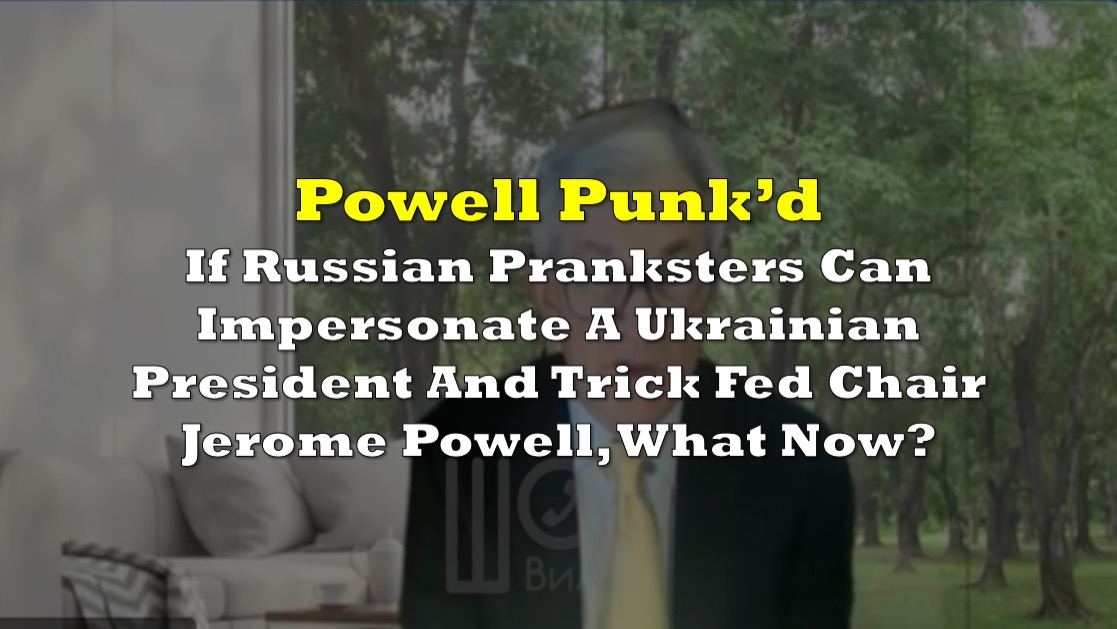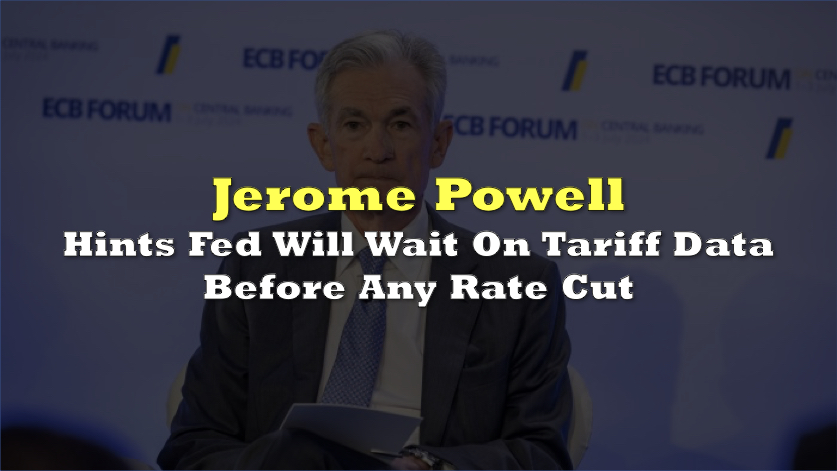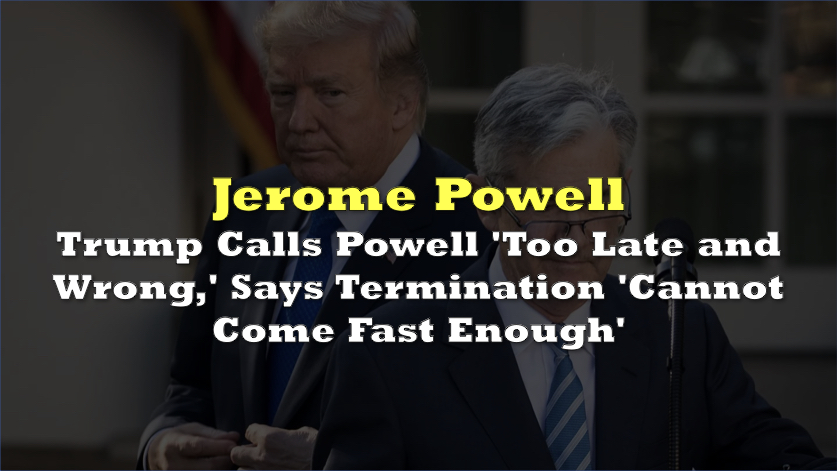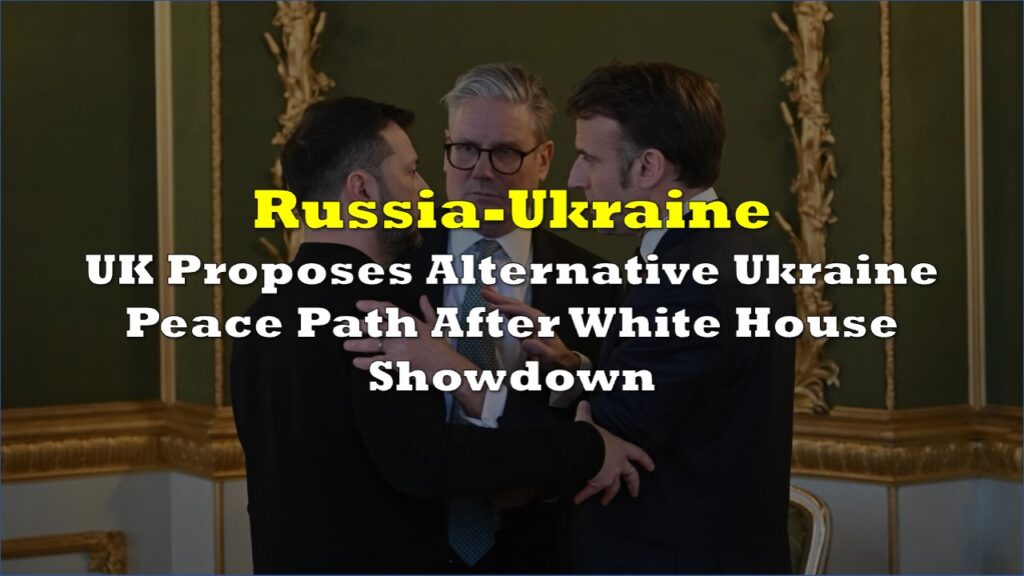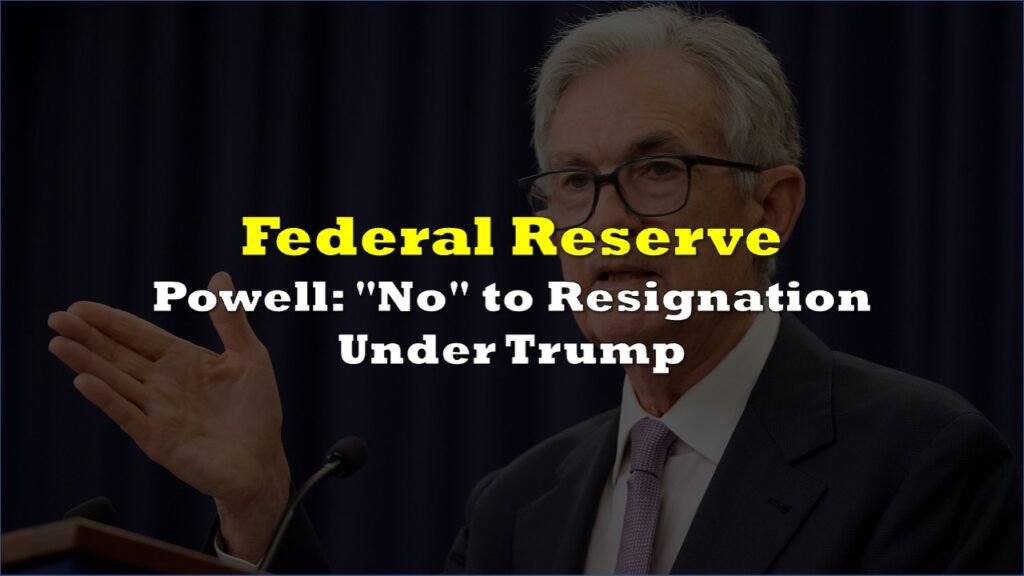According to video released on Russian state television, Federal Reserve Chairman Jerome Powell spoke with a couple of Russian pranksters portraying themselves as Ukrainian President Volodymyr Zelenskyy through a deepfake application.
The video shows Powell answering questions on themes ranging from the prospects for inflation to the Russian central bank, apparently thinking he was speaking to Zelenskyy. There were multiple recordings that lasted roughly 15 minutes, and it’s unclear whether the material was edited.
“Can we just say it’s a great honor to speak to you today? I’m glad you made time to speak to me… It’s just great to be with you today,” Powell starts in the conversation, believing he was speaking to the Ukrainian leader.
The deception crosses another level as the Zelenskyy impersonation appears to have been put out by Vladimir Kuznetsov and Alexei Stolyarov, two Russian pranksters who support President Vladimir Putin as the country continues to wage a one-year old war against Ukraine.
“Chair Powell participated in a conversation in January with someone who misrepresented himself as the Ukrainian president,” a Fed spokesperson said Thursday. “It was a friendly conversation and took place in a context of our standing in support of the Ukrainian people in this challenging time. No sensitive or confidential information was discussed.”
However, the authorities are still looking into the video material if it was edited to make it appear like a trick and the Fed said it could not confirm its accuracy. The matter has been referred to law enforcement, the spokesperson said.
Fed officials are currently in their pre-meeting quiet period, during which they avoid publicly speaking in the run-up to an interest rate decision. They will reconvene next week and announce a rate decision on Wednesday, following which Powell will conduct a press conference.
What can this mean?
While Powell’s comments in the call appeared to be in line with what he regularly expresses in public, the fact that the prank contact reached the leader of the central bank is likely to raise concerns about the Fed’s security.
In the call, Powell shared his thoughts on a potential recession, saying “this is what it takes to get inflation down.”
MUST WATCH:
— Stephen Geiger (@Stephen_Geiger) April 27, 2023
Jerome Powell was prank called by Russians pretending to be Zelenksky.
In the call, the Fed Chair admitted that a US recession is likely. “This is what it takes to get inflation down.” pic.twitter.com/t61gZGqw16
BREAKING: Powell has said that an economic downturn is possible or even likely, but that it is necessary to cool the economy and slow inflation.
— unusual_whales (@unusual_whales) April 27, 2023
He reportedly said this in a call with Russian pranksters who were posing as Ukrainian President Volodymyr Zelenskiy, per NYT.
Despite their gross impersonations, the pranksters, who go by the aliases Vovan and Lexus, have for years succeeded in deceiving foreign officials into chatting with them.
The two Russian pranksters also fooled other world leaders, including Christine Lagarde, chief of the European Central Bank (ECB). In the conversation with Lagarde where the pranksters also impersonated Zelenskyy, the ECB chief admitted that a digital euro will be used in a “limited” way to control the payments that people can make.
The video, which was highlighted by the breaking news account Watcher Guru, showed Lagarde stating that she is “personally convinced that we have to move ahead” with the digital euro because she does not want to be depending on a “unfriendly countries’ currency” or a currency offered by a “private corporate entity like Facebook or Google.”
When Zelenskyy impersonators pointed out that “the problem is they [European protestors] don’t want to be controlled” by a central bank digital currency, Lagarde admitted that “there will be control, you’re right. You’re completely right,” but that it would be “limited control.”
“We are considering whether for very small amounts, anything that is around 300, 400 euros, we could have a mechanism where there is zero control. But that could be dangerous,” she added, appearing to speak more candidly than normal, as she believed she was speaking to the Ukrainian leader.
JUST IN: 🇪🇺 European Central Bank President reveals plans to launch a digital euro (CBDC), says there will be control over payments. pic.twitter.com/szCFxBkZDR
— Watcher.Guru (@WatcherGuru) April 6, 2023
Despite it being a response to a fake Zelenskyy, Lagarde’s remarks sparked outraged in the crypto community, notably her claim that a digital euro will enable for greater control over individuals and payments.
“The President agreed to this conversation in good faith, also to demonstrate her support for Ukraine and its people defending themselves from Russia’s war of aggression,” an ECB spokesperson said Thursday.
In 2018, the UK stated it suspected the Kremlin was behind a bogus phone contact to then-Foreign Secretary Boris Johnson. The pranksters frequently publish videos with the purpose of embarrassing Western policymakers.
They also pretended to be former Ukrainian President Petro Poroshenko and communicated with Angela Merkel, Germany’s former chancellor. Merkel appeared skeptical in the phone tape, but she did not question the callers about it.
Last year, they duped Polish President Andrzej Duda into thinking he was conversing with his French counterpart, Emmanuel Macron.
The pranksters have had similar chats with other notable personalities, including J.K. Rowling, the author of Harry Potter, and George W. Bush, former President of the United States.
The prank videos, beyond its attempt to entertain, raises salient concerns that demand security discourses. If people can apply deepfake and impersonate high-ranking officials to trick other high-ranking officials, does this bode well for the public in the name of transparency or is this a slippery slope towards breaching national security barriers?
For instance, Zelenskyy had a long-awaited phone call with Chinese President Xi Jinping on Wednesday, which has been met with tentative optimism in Washington and parts of Europe because of its potential to increase discussion toward settling Russia’s deadly war in Ukraine.
Or was it really Zelenskyy?
Information for this briefing was found via Bloomberg, The New York Times, NDTV, Coin Telegraph, Rumble, and the sources mentioned. The author has no securities or affiliations related to this organization. Not a recommendation to buy or sell. Always do additional research and consult a professional before purchasing a security. The author holds no licenses.

